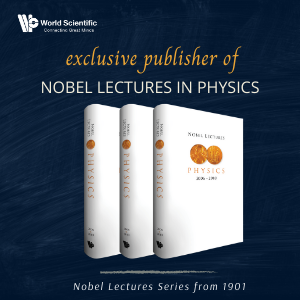System Upgrade on Tue, May 28th, 2024 at 2am (EDT)
Existing users will be able to log into the site and access content. However, E-commerce and registration of new users may not be available for up to 12 hours.For online purchase, please visit us again. Contact us at customercare@wspc.com for any enquiries.
"The book is a useful compendium of most significant topics in quantum information and computation … It is readable by any undergraduate or graduate student in physics, mathematics, computer science, chemistry or engineering … The book has a simple, attractive, easy to grasp and systematic treatment, with the final goal to be used as a substantial wide-ranging primer and single comprehensive material for quantum computation and information without the need for consulting supplementary texts."
Quantum computation and information is a rapidly developing interdisciplinary field. It is not easy to understand its fundamental concepts and central results without facing numerous technical details. This book provides the reader with a useful guide. In particular, the initial chapters offer a simple and self-contained introduction; no previous knowledge of quantum mechanics or classical computation is required.
Various important aspects of quantum computation and information are covered in depth, starting from the foundations (the basic concepts of computational complexity, energy, entropy, and information, quantum superposition and entanglement, elementary quantum gates, the main quantum algorithms, quantum teleportation, and quantum cryptography) up to advanced topics (like entanglement measures, quantum discord, quantum noise, quantum channels, quantum error correction, quantum simulators and tensor networks).
It can be used as a broad range textbook for a course in quantum information and computation, both for upper-level undergraduate students and for graduate students. It contains a large number of solved exercises, which are an essential complement to the text, as they will help the student to become familiar with the subject. The book may also be useful as general education for readers who want to know the fundamental principles of quantum information and computation and who have the basic background acquired from their undergraduate course in physics, mathematics, or computer science, as well as for researchers interested in some of the latest spin-off of the field, including the use of quantum information in the theories of many-body systems.
Sample Chapter(s)Chapter 1: Introduction
Contents:
- Preface
- Introduction
- Introduction to Classical Computation
- Introduction to Quantum Mechanics
- Quantum Computation
- Quantum Algorithms
- Quantum Communication
- Entanglement and Non-Classical Correlations
- Decoherence
- Quantum Information Theory
- Quantum Error Correction
- Principles of Experimental Implementations of Quantum Protocols
- Quantum Information in Many-Body Systems
- Appendix A: Elements of Linear Algebras
- Appendix B: Solutions to the Exercises
- Biography
- Index
Readership: Upper-level undergraduates and graduate students in physics, mathematics and computer science.


























